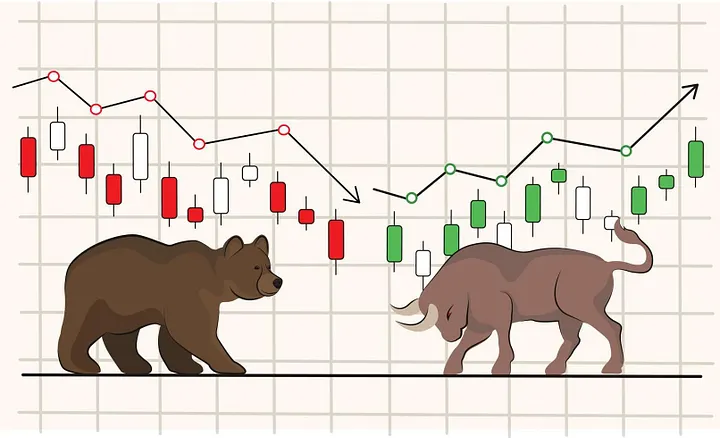Artificial Intelligence and the Evolution of Stock Market Trading in India
Introduction The stock market is one of the fastest-evolving sectors in India, and technology is driving much of this transformation. AI (Artificial Intelligence) has emerged as a game-changer, revolutionizing how traders analyze data, predict trends, and execute trades. Whether you are into stock market trading, forex trading, or learning through stock market classes, AI offers tools and insights that were once unimaginable. From AI chatbots providing real-time updates to generative AI helping create predictive strategies, AI is now integral to modern trading. Even managing a trading account and choosing the best trading apps has become more efficient with AI assistance. In this blog, we will explore how AI is transforming share market trading in India, the tools traders use, and why understanding AI is essential for anyone looking to succeed in today’s market. Understanding AI and Its Role in Trading Artificial Intelligence, commonly known as AI, is no longer just a buzzword — it has become a transformative force in multiple industries, and the stock market is one of the most impacted areas. Simply put, AI refers to computer systems and algorithms designed to perform tasks that normally require human intelligence. These tasks include learning from historical data, reasoning through complex problems, identifying patterns, making predictions, and even executing decisions. In the context of trading, AI provides tools and insights that can dramatically improve performance in both stock market trading and share market trading. Traditional trading relied heavily on human intuition, experience, and manual analysis of charts, reports, and news. While this approach worked to some extent, it had significant limitations — humans could only analyze a fraction of available data, leading to slower decision-making and potential errors. AI solves these challenges by processing massive datasets quickly, recognizing subtle patterns, and offering actionable insights. By integrating AI into trading strategies, traders in India — from beginners attending stock market classes to professionals managing multiple trading accounts — can gain a competitive edge over traditional methods. Generative AI: Crafting Intelligent Trading Strategies One of the most promising applications of AI in trading is generative AI. This form of AI uses historical market data and patterns to create trading strategies tailored to current market conditions. Generative AI can simulate multiple scenarios, allowing traders to understand potential outcomes before executing trades. For example, if a trader is engaged in intraday trading, generative AI can analyze historical price movements, detect patterns that often lead to profit, and generate multiple strategy options. This helps the trader select the best approach while reducing guesswork. Generative AI is not limited to just stocks — it is also highly effective in forex trading, where currency pairs exhibit complex, dynamic patterns influenced by global events. By using generative AI, even beginners with limited experience can make informed decisions and approach trading with a strategic mindset. Deep Learning AI: Discovering Hidden Market Insights Another critical AI technology in trading is deep learning AI, a subset of machine learning that uses neural networks to analyze massive datasets and detect patterns invisible to human traders. Deep learning AI evaluates numerous factors simultaneously, including stock prices, trading volumes, sector trends, economic indicators, and even global news. For instance, a deep learning AI system can identify correlations between certain stocks and market indices that have historically predicted price fluctuations. In share market trading or intraday trading, this ability to detect hidden patterns enables traders to anticipate market movements, reduce risk, and make more precise decisions. Deep learning AI continuously improves its predictions through AI learning, meaning the more data it processes, the smarter and more accurate it becomes. AI Bots and Chatbot AI: Real-Time Assistance and Automation AI bots and chatbot AI are revolutionizing how traders interact with the stock market. AI bots can monitor markets continuously, identify opportunities, and execute trades automatically based on predefined conditions. For example, a bot can be programmed to sell a stock if its price drops below a specific level or to buy a currency pair when certain technical signals appear. Chatbot AI, on the other hand, enhances the user experience by offering interactive guidance. Traders can ask questions about market trends, request analysis of particular stocks, or receive instant alerts regarding market movements. With AI chatbot online platforms, even beginners can access professional-grade insights and advice in real time, making stock market trading more accessible and less intimidating. AI Assistants and AI Chat Online: Navigating Complex Trading Environments An AI assistant acts as a virtual trading companion, guiding users through complex platforms, monitoring trading accounts, and offering strategic recommendations. AI assistants can personalize suggestions based on a trader’s risk appetite, previous trades, and market conditions. For beginners attending stock market classes or share market classes, AI assistants simplify the learning process. They can explain technical terms, demonstrate strategies, and provide alerts for potential trades. Experienced traders also benefit from AI assistants in intraday trading or managing large forex trading portfolios, as the assistants can analyze vast amounts of data quickly, freeing traders to focus on strategy and decision-making. The Broader Impact of AI on Trading The integration of AI in trading goes beyond automation and convenience. It fundamentally changes how decisions are made. By leveraging AI technology, traders can: In essence, AI empowers traders in India to work smarter, not harder. By providing predictive insights, real-time support, and automated execution, AI ensures that traders — whether beginners or professionals — can compete effectively in today’s dynamic markets. The Indian stock market has seen rapid evolution in recent years, and technology — especially Artificial Intelligence (AI) — has become a central force in shaping how trading operates. From individual traders managing a trading account to institutional investors handling large portfolios, AI is redefining strategies, decision-making processes, and the very pace of market operations. By integrating AI tools, traders can gain insights and advantages that were previously unattainable using traditional methods. One of the most powerful ways AI is transforming trading is through predictive analysis. By leveraging artificial intelligence and data science, AI can analyze vast amounts of
Artificial Intelligence and the Evolution of Stock Market Trading in India Read More »



